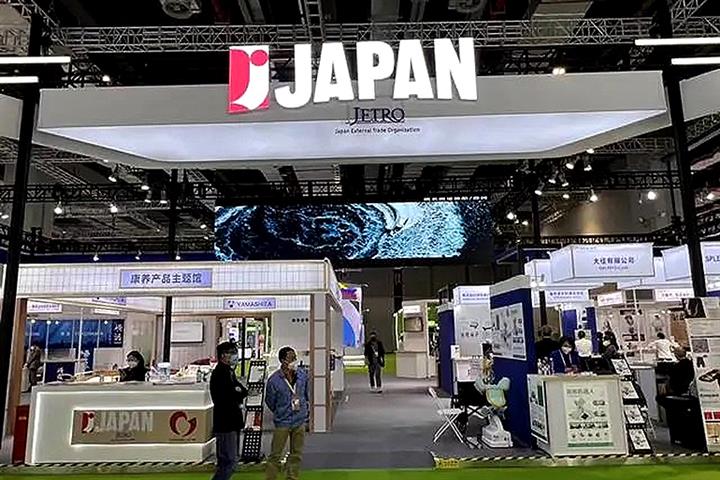 Japanese SMEs Join CIIE via WeChat to Enter China
Japanese SMEs Join CIIE via WeChat to Enter China(Yicai Global) Nov. 7 -- Some 100 Japanese companies are exhibiting 2,000 products, including food, cosmetics, and clothing, on a WeChat mini-program released during the fifth China International Import Expo, with help from the Japan External Trade Organization.
Small and medium-sized enterprises coming from Japan are participating in the expo via the Japan Business Pavilion on the social media platform in a bid to attract more Chinese clients, Yicai Global learned from the government-backed organization. The ongoing trade expo in Shanghai will continue till Nov. 10.
The JETRO has a physical booth at the CIIE and visitors can scan QR codes to enter the WeChat mini-program to see products sold by Japanese companies. Some 90 percent of the goods are new to China. The organization plans to expand the scale to 30,000 products made by 3,000 companies.
It is difficult for Japanese SMEs that are new to China to sell products with limited awareness, Kenji Mizuta, director of the JETRO Shanghai, said to Yicai Global. The JETRO hopes to build a business-to-business platform to help more Japanese SMEs market their products in China, Mizuta added.
The JETRO has assisted Japanese firms to participate in all of the annual CIIEs. Some 280 Japanese SMEs took part in the exhibition this year, unchanged from last year. The main sectors are food, consumer goods, and medical equipment.
Many large Japanese enterprises have started to use WeChat, operated by Tencent Holdings, in recent years to advance their strategies in the Chinese market.
In January, Japan Airlines helped Japanese e-commerce service providers display products, deliver goods and promote sales on WeChat, hoping to make up for its aviation business loss amid poor demand due to the impacts of the Covid-19 pandemic.
In August, Tokyo-based cross-border e-commerce company Intersect Communications started to promote local products through WeChat. It introduced products from Hagi in Yamaguchi prefecture, Nagasaki, and Hakodate in Hokkaido.
Some large Japanese department stores are seeking to serve the Chinese market via the social media and payments platform. Last year, Seibu & Sogo launched its cross-border mini-program and Hankyu Department Store also communicates with Chinese customers through its applet.
Editors: Shi Yi, Emmi Laine, Xiao Yi